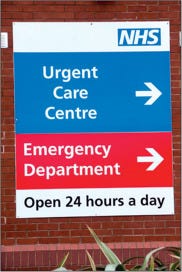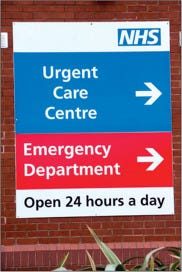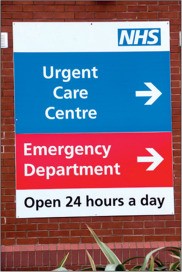institute for continous health transformation (InHealth)
Joaquim Cardoso MSc
Chief Researcher, Editor and Senior Advisor
January 27, 2023
SOURCE:
The Lancet — Editorial
January 2023
The NHS is 75 years old and is unwell.
- Patients with a suspected heart attack are waiting five times longer for an ambulance than the 18-min target.
- In 2022, 347 707 patients spent more than 12 h in Accident and Emergency departments waiting for a bed, four times as many as in the previous 10 years put together.
- Excess deaths in 2022 were the highest in 50 years.
- Record numbers of NHS staff are leaving.
Unfortunately, things are likely to get worse before they get better.
For the first time in the NHS’s history, both nurses and ambulance staff will strike on February 6, unless a deal is reached over pay.
Junior doctors will also vote on whether to strike.
This is undoubtedly the most perilous moment for the NHS since its inception.
For the first time in the NHS’s history, both nurses and ambulance staff will strike on February 6, unless a deal is reached over pay.
This is undoubtedly the most perilous moment for the NHS since its inception.

Chronic and acute problems have combined to foment this rapid deterioration.
Although the symptoms have been there since at least 2015, they have been poorly diagnosed and left untreated.
- Underinvestment,
- understaffing, and
- running the system at full capacity have been exacerbated by
- deep demoralisation and
- burnout in NHS staff,
- increasing demand for services, and
- winter increases in COVID-19 and influenza.
Population health has been neglected, and stalling life expectancy and a struggling social care system have been ignored.

In the debate about solutions, there are several unhelpful distractions.
1.First, the Government’s inclination is to believe that the current NHS model is unsustainable and needs radical change, with copayments and enhanced means-tested user contributions, as former Health Secretary Sajid Javid recently revealed.
This view is deeply wrong.
With the right approach, the NHS is sustainable, and must maintain the principle of delivering free care at the point of need, which is the foundation for a just society.
With the right approach, the NHS is sustainable, and must maintain the principle of delivering free care at the point of need, which is the foundation for a just society.
2.Second, that the NHS has a productivity problem; that it does not do enough with what it is given.
This is to badly misunderstand the purpose of health care, which is not a factory for the sick, judged according to crude metrics of efficiency, but a service based on care, compassion, and quality.
To continue to focus on doing comparatively more for comparatively less is dangerous and obviously harmful.
3.Third, that the challenges faced by the NHS can be solved by drawing on a stronger private health sector.
The UK’s private sector workforce is mostly drawn from the same workforce that makes up the public sector.
Robbing one to buttress another while fatally fracturing the health service makes no sense.
4.Fourth, a proposed Royal Commission or cross-party consensus is unlikely to be useful.
The NHS faces a workforce crisis and a capacity crisis closely linked with a social care crisis.
The NHS faces a workforce crisis and a capacity crisis closely linked with a social care crisis.
We have a diagnosis; the Government must now move to treat these conditions.
An avoidance to do so should be viewed as an ideological choice, rather than because of some fundamental and innate intractability.

In the short term, there are two remedies.
1.First, the Government must recognise that the NHS is in crisis and requires urgent and unparalleled action.
2.Second, it must offer a message of value to NHS staff, in the form of compromise over a financial settlement for pay and non-financial commitments, …
… such as addressing pension reforms, improving basic working conditions, and delivering on a promised workforce plan.
In turn, the NHS must accept that, through whatever cause, it has a culture problem.
Racism, sexism, bullying, harassment, and conflict are pervasive.
A toxic work culture is a frequently cited reason for leaving the NHS and negatively impacts patient care.
In the long term, investment in public health and prevention must be scaled up as the main way to reduce demand on the NHS.
The Government must move away from short-term injections of money and use tax-based funding to deliver sustained and predictable increases in finance.
In this way, capacity and resilience can be built back into the system from the ground up, with investment in staff, estates, and technology.
In this way, capacity and resilience can be built back into the system from the ground up, with investment in staff, estates, and technology.
The NHS must get better at rapid development and dissemination of innovation, and the adoption of new models of working should not be blocked by traditional views on roles and responsibilities.
Anything is better than the current model of social care, which monetises vulnerability, enriches a few providers, and leaves more than a quarter of social care staff living in poverty.

Negligent care of the NHS has brought the service to its knees.
But contrary to the popular narrative, there are some quick wins.
Not least, value and remoralise NHS staff, who are responsible for protecting the health of the nation through an unprecedented economic crisis that is worsening inequality and driving thousands of people into poverty and precarity.
Originally published at https://www.thelancet.com.












